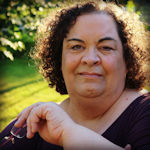Hey there, Christian Indies!
I am here to woo you back!
It’s been a long time since we reached out to you all – but that’s only because we’ve been being holly-jolly with our friends and family. (Can you blame us? I mean, you’ve seen Teddy.) Now, I’m here to woo you over to your Friday “happy place!” That’s right – The Christian Indie Writers are back on 1/08/2021, for another year filled with information, encouragement, support, (and shenanigans!), to accompany your journey toward publication!
[Read more…] about Episode 117: Writing as a Business: Career or Hobby?
Jenifer Carll-Tong is the best-selling author of historical Christian romances and co-host of the Christian Indie Writers’ Podcast.



